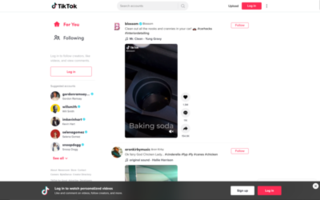Related Research Articles

In mass communication,digital media is any communication media that operates in conjunction with various encoded machine-readable data formats. Digital content can be created,viewed,distributed,modified,listened to,and preserved on a digital electronic device,including digital data storage media and digital broadcasting. Digital is defined as any data represented by a series of digits,and media refers to methods of broadcasting or communicating this information. Together,digital media refers to mediums of digitized information broadcast through a screen and/or a speaker. This also includes text,audio,video,and graphics that are transmitted over the internet for viewing or listening to on the internet.

The University of Colorado Boulder is a public research university in Boulder,Colorado,United States. Founded in 1876,five months before Colorado became a state,it is the flagship university of the University of Colorado system. CU Boulder is a member of the Association of American Universities and is classified among R1:Doctoral Universities –Very high research activity.
The Ivan Allen College of Liberal Arts is a college of the Georgia Institute of Technology,a public research university in Atlanta,Georgia. It is one of the six academic units at the university and named for former two-term Atlanta mayor Ivan Allen Jr.,a Georgia Tech alumnus and advocate for the advancement of civil rights in America.

Internet in Afghanistan (Taliban) is available in all of its 34 provinces,and is used by over 9 million people as of 2022. The internet officially became available in 2002 during the presidency of Hamid Karzai. Prior to that year,it was prohibited because the Islamic Emirate of Afghanistan believed that it may be used to broadcast obscene,immoral and anti-Islamic material,and because the few internet users at the time could not be easily monitored as they obtained their telephone lines from neighboring Pakistan.

Social media marketing is the use of social media platforms and websites to promote a product or service. Although the terms e-marketing and digital marketing are still dominant in academia,social media marketing is becoming more popular for both practitioners and researchers.

Robert "Bob" T. McGrath is the director of RASEI,a joint institute of NREL and CU-Boulder. He was a senior vice president responsible for research partnership development in the office of the Executive Vice President for Research. He is also a former director of the Georgia Tech Research Institute,the applied research arm of Georgia Tech,a position he held from 2011 to 2014. Prior to his appointment as GTRI director,McGrath was involved with the Battelle Memorial Institute;his past experience also includes research leadership positions at the National Renewable Energy Lab,Ohio State University,and Penn State University.

Digital privacy is often used in contexts that promote advocacy on behalf of individual and consumer privacy rights in e-services and is typically used in opposition to the business practices of many e-marketers,businesses,and companies to collect and use such information and data. Digital privacy,a crucial aspect of modern online interactions and services,can be defined under three sub-related categories:information privacy,communication privacy,and individual privacy.
Social media in education is the use of social media to enhance education. Social media is "a group of Internet-based applications...that allow the creation and exchange of user-generated content". It is also known as the read/write web. As time went on and technology evolved,social media has been an integral part of people's lives,including students,scholars,and teachers in the form of social media. However,social media is controversial because in addition to providing new means of connection,critics claim that it damages self-esteem,shortens attention spans,and increases mental health issues.

Kellie Gerardi is an American social media influencer,customer support and media professional in private spaceflight,and commercial citizen scientist who is known for her sub-orbital spaceflight with Virgin Galactic and candidacy for the Mars One mission.
This page is a timeline of social media. Major launches,milestones,and other major events are included.

ByteDance Ltd. is a Chinese internet technology company headquartered in Haidian,Beijing and incorporated in the Cayman Islands.

Brendan Thomas Carr is an American lawyer who has served as a member of the Federal Communications Commission (FCC) since 2017. Appointed to the position by Donald Trump,Carr previously served as the agency's general counsel and as an aide to FCC commissioner Ajit Pai. In private practice,Carr formerly worked as a telecommunications attorney at Wiley Rein.

TikTok,whose mainland Chinese counterpart is Douyin,is a short-form video hosting service owned by Chinese internet company ByteDance. It hosts user-submitted videos,which can range in duration from three seconds to 60 minutes. It can be accessed with a smart phone app.

Kuaishou Technology is a Chinese publicly traded partly state-owned holding company based in Haidian District (Beijing),founded in 2011 by Hua Su (宿华) and Cheng Yixiao (程一笑). The company is known for developing a mobile app for sharing users' short videos,a social network,and video special effects editor.

Taylor Lorenz is an American journalist. She is a columnist for The Washington Post. She was previously a technology reporter for The New York Times,The Daily Beast,and Business Insider,and social media editor for the Daily Mail. She is particularly known for covering Internet culture.

Many countries have imposed past or ongoing restrictions on the video sharing social network TikTok. Bans from government devices usually stem from national security concerns over potential access of data by the Chinese government. Other bans have cited children's well-being and offensive content such as pornography.
Abbie Richards is a misinformation educator and environmental activist whose conspiracy theory charts went viral on Twitter in 2020 and 2021.

In 2020,the United States government announced that it was considering banning the Chinese social media platform TikTok upon a request from then-president Donald Trump,who viewed the app as a national security threat. The result was that TikTok owner ByteDance—which initially planned on selling a small portion of TikTok to an American company—agreed to divest TikTok to prevent a ban in the United States and in other countries where restrictions are also being considered due to privacy concerns,which themselves are mostly related to its ownership by a firm based in China.

Filters are digital image effects often used on social media. They initially simulated the effects of camera filters,and they have since developed with facial recognition technology and computer-generated augmented reality. Social media filters—especially beauty filters—are often used to alter the appearance of selfies taken on smartphones or other similar devices. While filters are commonly associated with beauty enhancement and feature alterations,there is a wide range of filters that have different functions. From adjusting photo tones to using face animations and interactive elements,users have access to a range of tools. These filters allow users to enhance photos and allow room for creative expression and fun interactions with digital content.
References
- 1 2 3 "Casey Fiesler". College of Media, Communication and Information. 2015-06-01. Retrieved 2024-01-29.
- 1 2 Dube, Rob. "Why Ethics Matter For Social Media, Silicon Valley And Every Tech Industry Leader". Forbes. Retrieved 2024-04-11.
- ↑ Preston, Joshua (9 May 2016). "Georgia Tech Research Finds Fan Communities Are Reshaping the Social Web for the Better | News Center". news.gatech.edu. Retrieved 2024-01-29.
- ↑ Dever, Ally (2022-03-18). "Millions are turning to TikTok for the latest on Ukraine, but can the platform be trusted?". CU Boulder Today. Retrieved 2024-01-29.
- 1 2 Yohannes, Samraweet (4 March 2022). "How TikTok's design helps turn ordinary people into villains". CBC.
- ↑ Cheng, Amy; María, Luisa Paúl (17 December 2021). "Law enforcement, schools downplay unconfirmed TikTok shooting threats that prompted tighter campus security". Washington Post.
- ↑ Key, Madeleine (2023-11-20). "Understanding IP Matters: How a Unique Influencer-Educator is Attracting Diverse Audiences". IPWatchdog.com | Patents & Intellectual Property Law. Retrieved 2024-01-29.
- ↑ Worthington, Danika (2017-09-18). "Researchers are studying your social media. What do you think of that?". The Denver Post. Retrieved 2024-04-11.
- ↑ Schwedel, Heather (2018-03-29). "Why Did Fans Flee LiveJournal, and Where Will They Go After Tumblr?". Slate. ISSN 1091-2339 . Retrieved 2024-04-11.
- ↑ Stephen, Bijan (2018-12-06). "Tumblr's porn ban could be its downfall — after all, it happened to LiveJournal". The Verge. Retrieved 2024-04-11.
- 1 2 Fulcher, Michelle P. (30 July 2018). "Barbie's Now A Robotics Engineer. This CU Professor Helped Make It Happen". Colorado Public Radio. Retrieved 2024-01-29.
- 1 2 Morfitt, Karen (2018-07-25). "CU Professor Helping Shape Barbie's Future Image On The Job - CBS Colorado". CBS News. Retrieved 2024-04-11.
- ↑ Carlson, Adam (20 November 2014). "Georgia Tech student rewrites sexist Barbie book". The Atlanta Journal Constitution. Archived from the original on 3 March 2015.
- ↑ NPR Staff (22 November 2014). "After Backlash, Computer Engineer Barbie Gets New Set Of Skills". All Things Considered. NPR.
- ↑ Marshall, Lisa (2023-04-04). "Building a better 'bionic pancreas'". CMCI Now Magazine. Retrieved 2024-01-29.